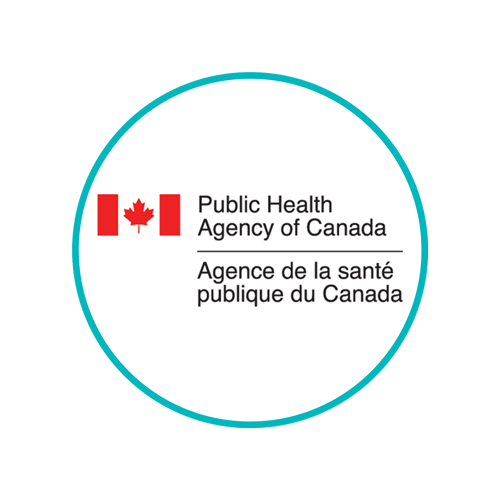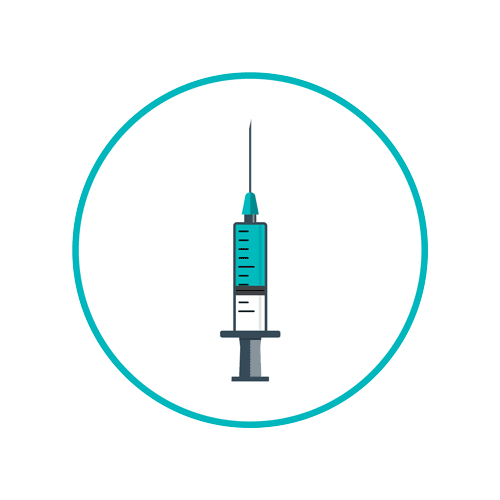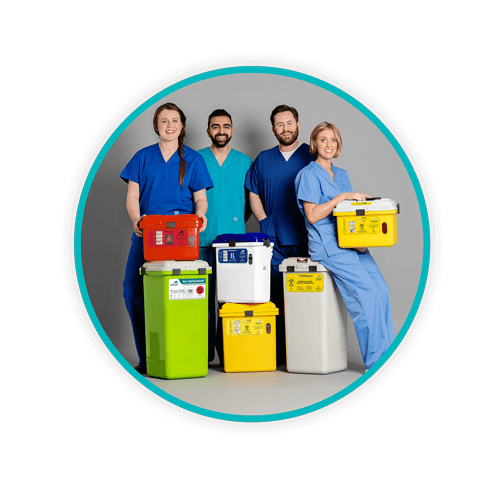Best Practices for Medical Waste Disposal at Dialysis Centres in Canada

For dialysis centres, your focus is naturally on providing care for those suffering from kidney failure. But, one concern you should keep in mind is the proper disposal of medical waste. Healthcare facilities, including kidney care providers, are responsible for the proper disposal of the medical waste they generate, and misclassification or improper disposal may also put your staff, patients, and the surrounding environment at risk. Not only this, but in many cases, such a failure may be illegal, leading to fines and other penalties. Fortunately, Daniels Health can help you to ensure your facility remains in compliance, so let's take a closer look at what that entails.
TOPICS WE WILL COVER:
1 / Who Regulates the Disposal of Biomedical Waste for Canadian Dialysis Centres?
2 / What Types of Medical Waste Do Dialysis Centres Produce?
3 / Specific Categories of Concern
4 / Provincial and Local Regulations
5 / How to Find Your Province’s Regulation
6 / Consequences for Failure to Comply
Who Regulates the Disposal of Biomedical Waste for Canadian Dialysis Centres?
For the most part, the disposal of medical waste, including biomedical and pharmaceutical wastes, is governed by provincial and territorial standards. This is not entirely without standardisation. The Canadian Council of Ministers of the Environment has provided universal guidelines for biomedical waste disposal. In most provinces, these guidelines – or even stronger standards – have been adopted.
These federal guidelines provide specific requirements for the disposal of different types of biomedical waste. This includes bodily fluids, anatomical wastes, and waste sharps. For example, according to federal guidelines, "[c]linical and laboratory materials consisting of needles, syringes, blades, or laboratory glass capable of causing punctures or cuts (referred to as waste sharps), must be incinerated, autoclaved, or subjected to other treatment technologies considered acceptable to the regulatory authority."
Another consideration includes staff safety in regard to hazardous substances. One of these substances is pharmaceutical waste. This waste is regulated under the Canada Occupational Health and Safety Regulations as well as provincial and territorial laws. Under this law, employers are required to provide suitable safety for employees from hazardous substances. This means both biological and chemical substances, including materials contaminated with bodily fluids and chemicals, such as expired pharmaceuticals.
Many enforcement agencies may become involved in the regulation and enforcement of medical waste disposal requirements, including:
- The Canadian Centre for Occupational Health and Safety;
- Canadian Council of Ministers of the Environment;
- Royal Canadian Mounted Police; and
-
Provincial & Territorial Authorities
What Types of Medical Waste Do Dialysis Centres Produce?
Each province may apply its own exact definitions to different types of medical waste. However, most resemble the definition set forth in the Guidelines for the Management of Biomedical Waste in Canada. These guidelines were created by the Canadian Council of Ministers of the Environment.
This defines biomedical waste as waste generated by: human or animal health care facilities, medical or veterinary research and teaching establishments, health care teaching establishments, clinical testing or research laboratories, and facilities involved in the production or testing of vaccines that consist of: 
- Human Anatomical Waste
- Animal Waste
- Microbiology Laboratory Waste
- Human Blood and Body Fluid Waste; and
-
Waste Sharps
Clearly, kidney care centres, which require direct interaction with patients' blood in order to filter it through a hemodialyzer, produce a wide range of wastes that would fall into this broad category. This includes waste needles, IV tubings, and in some cases, pharmaceutical wastes – each of which requires special disposal.
Specific Categories of Concern
For dialysis centres, some types of specialised medical waste of particular concern include:
- Bodily Fluids: The dialysis process involves direct interaction with human blood. Therefore, it will often generate numerous items of waste that are contaminated with bodily fluids. As a result, these items pose a significant threat of harm.
- Sharps: Waste sharps will be generated as the result of many activities taking place as part of the dialysis process, including IV tubing used to complete the process. In addition, some dialysis facilities may prepare patients for dialysis by creating an AV fistula, which as a surgical procedure, will create many types of waste, including scalpels.
-
Pharmaceutical Waste: Dialysis centres will often carry a selection of pharmaceuticals used to assist with the hemodialysis process. This includes blood thinners and iron supplements, among other medications. When these medications expire or become contaminated, they must be disposed of in a secure manner to prevent misappropriation, tampering, or environmental damage.
These wastes must be handled and disposed of properly to prevent harm to people and the environment in accordance with federal and provincial laws. For example, under Part 10 of the Canada Occupational Health and Safety Regulations, "Every container for a hazardous substance that is used in the workplace shall be so designed and constructed that it protects the employees from any health or safety hazard that is caused by the hazardous substance."
Provincial and Local Regulations
The particular classifications and disposal requirements for a given waste stream depend highly upon the provincial and local standards for the location of a given facility. For example, in Quebec, biomedical waste that is classified as anatomical must be treated with incineration. In contrast, non-anatomical biomedical waste must be treated by disinfection or incineration before final disposal.
These requirements may become more complex when local requirements are taken into consideration, and this can become confusing fast. Fortunately, a medical waste disposal expert from Daniels Health can help guide you through all of the local and provincial regulations pertaining to dialysis centres.
How To Find Your Province's Regulations
In most Canadian provinces, the disposal of medical waste is governed by legislation covering all types of waste materials. Typically, these requirements can be found on the government web pages under the environmental management regulations for each province or territory.
For example, in British Columbia, medical waste disposal is governed by the Environmental Management Act and enforced by provincial inspectors. In Quebec, this can be found in the Environment Quality Act, chapter Q-2, r. 12, Regulation respecting biomedical waste.
However, you do not need to identify all of these regulations on your own. Daniels Health provides a portal for finding the regional regulations for each province and territory. Further, when you work with us, we will devise a complete plan for storage and disposal that is compliant with these regulations. So, waste management will be one concern you can take off of your workload.
Consequences for Failure to Comply
When it comes to non-compliance with medical waste disposal regulations, the penalties can be extremely severe. For violations of the Canada Occupational Health and Safety Regulations, directors and officers of corporations may face up to a $1,500,000 fine and or up to 12 months of imprisonment. All other individuals may face up to a $1,000,000 fine and/or the same term of imprisonment.
If this isn't enough, violations of provincial or territorial medical waste disposal requirements can prove just as or more severe. Under Quebec's Regulation, respective biomedical waste penalties for violations may rise as high as fines of $6,000,000 or imprisonment for terms of up to 3 years. It is easy to see why it is important to remain in compliance with medical waste disposal laws.
Let Us Help
Daniels Health is the expert when it comes to safe, compliant, and environmentally conscious waste solutions for dialysis centres. When it comes to protecting people and the environment as well as preventing potential liability, proper waste management is a must. So, trust the experts at Daniels Health to help you create a comprehensive waste disposal plan by contacting us now.
